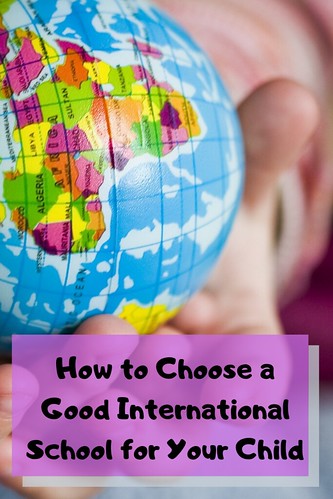If you’re moving abroad for work, or any other reason, there are plenty of logistics to think about. One of those is where to send your children to school.
When you’re an expat, you have two primary choices as far as your children’s education. You can send your kids to a local school or an international school.
Most parents find that an international school can be the best option for their family, during their time abroad. Whether you’re looking for premier educational institutions in the Emirate, or other locations popular among expats throughout the world, the following are some key things to know.

Comparing International and Local Schools
International schools, if they’re within your budget, are a good option for expat families for quite a few reasons. First, it can be easier for kids to adjust to an international school because it’ll be more similar in format to what they’re used to.
Also, students come in from all around the world every year, so everyone is new at some point, and it’ll be easier for your child to acclimate when other students are in the same situation.
If you do go with a local school, your child will get a real feel for the customs and culture of your new home, but they will have to learn the language, and they may not feel like they fit in.
Starting Your Search for an International School
A good starting point to find an international school, if that’s what you decide on, is your home country’s consulate website for the new city where you’ll be moving. They may have a list of available schools, and from there you can begin a web search to find out more information about the options available to you.
Once you have a shortlist of potential schools, personally reach out by phone or email.
Ask them about the logistics of getting your child enrolled. For example, is there a waiting list or how is a spot reserved at the school? How does the school go about helping children transition to their new environment, and how might the school’s curriculum compare to that of your home country?
Are there extracurriculars available, that might further help your child find a social group and become accustomed to his or her new home?
Of these questions, the curriculum-related questions can be most important. If you’re planning on being in a new country for a certain period of time, it’s likely your child will then return to a school in your home country.
If the curriculum of the international school doesn’t somewhat line up with that of your home country, it can create significant challenges.
You also want to make sure that if your child ultimately graduates from an international school that their credentials and diploma will allow them to be eligible to attend college in your home country.
What Accreditations Does the School Have?
You should look for international schools that are accredited. This can help make sure the curriculum is in line with international standards and will allow your child flexibility outside of the school.
Accreditation will also make sure credits can be transferred.
If you’re originally from the U.S., you should look for American accreditation organizations.
The Application Process
International schools can often be very prestigious, and they may have a rigorous application and admittance policy. Along with waitlists, some of these schools might not permit students to join halfway through the school year.
Before you get your heart set on any one school, be aware of admittance requirements and potential limitations.
Make sure you have all the necessary paperwork required for the application done well ahead of time in case you’re missing anything.
Your child may also have to go through an entrance exam, and meeting fairly rigorous requirements may only get you a spot on a lengthy waiting list.
Along with starting the application process early, you also want to have a second and possibly third choice lined up.
Finally, cost is a big consideration. If you’re thinking about an international school, it’s going to be a financial investment. Check with your employer, however, because some will cover the costs of your child’s education or at least a portion.
Also, the yearly tuition only tells a portion of the story cost-wise. For example, you may have to pay for supplies, extra-curricular, and enrollment fees. The yearly fees also tend to go up with each academic year.
Have you enrolled your kids in an international school? Please share your best tips in the comments, below!
